 Dial
Records was owned by Buddy Killen, who founded the label in 1961 as a vehicle for Joe Tex recordings.
Although most of the albums released on the label from 1964-1979 were indeed by Joe Tex, the singles
discography shows many other artists signed to the label. Outside of Joe Tex, however, the hits were
few and far between.
Dial
Records was owned by Buddy Killen, who founded the label in 1961 as a vehicle for Joe Tex recordings.
Although most of the albums released on the label from 1964-1979 were indeed by Joe Tex, the singles
discography shows many other artists signed to the label. Outside of Joe Tex, however, the hits were
few and far between.
The first time I saw Buddy Killen's name was in 1960, where he was listed as the songwriter for the hit song "Forever" by the Little Dippers on the University label. Killen, however, went considerably farther back than that in the music industry. In the early 1950s, Killen, then in his teens, was a bass player for the Grand Ole Opry in Nashville. The manager of the Grand Ole Opry, Jack Stapp, asked Killen to listen to songs for him in a publishing business (Tree Publishing) that Stapp was starting. Killen was paid $35 per week to produce demo recordings and plug songs, that is, try to interest artists in recording songs for which Tree held the publishing rights. (Tree held the rights to "Heartbreak Hotel" when Mae Boren Axton approached a young Elvis Presley and persuaded him to record it.) By 1957, Killen was Vice President of Tree Publishing and owned 30 percent of the company. The publishing business grew over the years into the huge Tree International. When Stapp died in 1989, Killen was able to buy his shares and took over outright ownership of the publishing company, which he eventually sold for a reported $30 million.
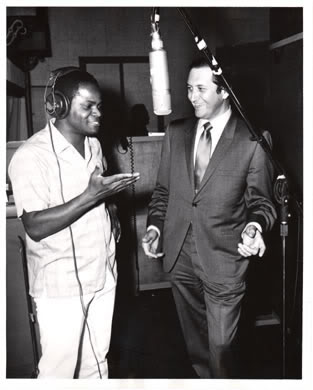 In 1961, Killen was tipped off by his assistant, Jerry Crutchfield, that he had met a great singer named
Joe Tex. Killen listened to Tex and agreed, and wanted to sign him as a songwriter and to place him
with major labels for recording. When this failed, Killen decided to establish a record label as a
subsidiary of Tree Publishing and record Tex on the new label he called Dial. (There had been several
other labels with this name over the years, but by 1961, all the others had gone out of business.) Buddy
Killen and Joe Tex were both in their late twenties and got along well right from the start.
In 1961, Killen was tipped off by his assistant, Jerry Crutchfield, that he had met a great singer named
Joe Tex. Killen listened to Tex and agreed, and wanted to sign him as a songwriter and to place him
with major labels for recording. When this failed, Killen decided to establish a record label as a
subsidiary of Tree Publishing and record Tex on the new label he called Dial. (There had been several
other labels with this name over the years, but by 1961, all the others had gone out of business.) Buddy
Killen and Joe Tex were both in their late twenties and got along well right from the start.
Joe Tex was born Joseph Arrington, Jr. in Baytown, Texas, in 1933, and spent his youth singing in church (the influences in his lyrics and topics for recordings are obvious). He went to New York in 1954 after he won a singing contest in Texas, and entered another contest at the Apollo Theater, which he also won. This led to a recording contract with King Records of Cincinnati. Although he recorded a number of singles for the label, none were successful. He had a minor hit in 1960 on Berry Gordy's Anna label with "All I Could Do Was Cry" [Anna 1119, 8/60, #102], but by 1961 was again looking for a label when Crutchfield came across him.
In 1961, Dial released only two singles, Joe Tex's "The Only Girl I've Ever Loved"/"What Should I Do" [Dial 3000] and "Conscience Let Me Go"/"Pain Reliever" by Wayne C. Handy [Dial 3001]. Neither made a ripple.
1962 and 1963 were years where Buddy Killen was trying things out and Joe Tex was learning his songwriting and singing craft. During those two years, Dial released six more singles by Tex to no avail. Other artists on Dial included George Kent, the Four Winds, the Catalinas, Gene & Jerry, and Jerry Woodard. 1964 wasn't much better. Three more Joe Tex singles were released, but this time one of them, "I'd Rather Have You" [Dial 3020] reached #44 on the R&B charts. New artists for the label in 1964 were Clarence Reid and Bobby Marchan, who had a chart hit with "I've Got a Thing Goin' On" [Dial 3022, 9/64, #102 pop/#25 R&B].
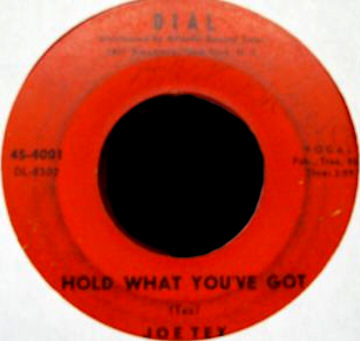
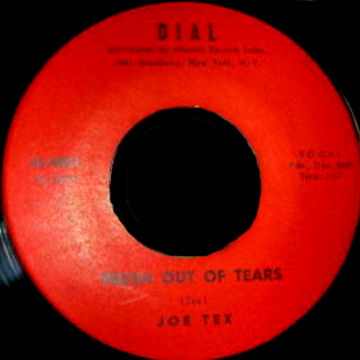 By the end of 1964, it was clear some things had to change. Killen had been doing his own distribution,
which hadn't been particularly effective, so he signed a distribution agreement with Atlantic Records
(Atlantic changed the singles catalog numbering from the 3000 series, which had reached 3023, to the
4000 series, so the series jumped to 4001.) The other problem was Joe Tex, who was getting
discouraged after nine singles over four years and only one minor chart hit. Tex was asking Killen about
getting out of his contract. Buddy asked Joe to be patient for one more single. They went down to
Fame Studio in Muscle Shoals, Alabama, in November, 1964, to record "Fresh Out of Tears." After a
grueling seven hours, Killen suggested they record a few lines from a new song Tex had written, but
using country chords and country harmony. Tex was reluctant, claiming he didn't know anything about
harmony. Killen overdubbed and spliced takes together, and finally came up with a finished (mono)
master. The song was "Hold What You've Got" [Dial 4001], the first single distributed by Atlantic, which
went to #1 R&B and #5 pop (with "Fresh Out of Tears" as the flip). Suddenly, everything was back to
sweetness and light with Joe Tex, Buddy Killen and Dial Records.
By the end of 1964, it was clear some things had to change. Killen had been doing his own distribution,
which hadn't been particularly effective, so he signed a distribution agreement with Atlantic Records
(Atlantic changed the singles catalog numbering from the 3000 series, which had reached 3023, to the
4000 series, so the series jumped to 4001.) The other problem was Joe Tex, who was getting
discouraged after nine singles over four years and only one minor chart hit. Tex was asking Killen about
getting out of his contract. Buddy asked Joe to be patient for one more single. They went down to
Fame Studio in Muscle Shoals, Alabama, in November, 1964, to record "Fresh Out of Tears." After a
grueling seven hours, Killen suggested they record a few lines from a new song Tex had written, but
using country chords and country harmony. Tex was reluctant, claiming he didn't know anything about
harmony. Killen overdubbed and spliced takes together, and finally came up with a finished (mono)
master. The song was "Hold What You've Got" [Dial 4001], the first single distributed by Atlantic, which
went to #1 R&B and #5 pop (with "Fresh Out of Tears" as the flip). Suddenly, everything was back to
sweetness and light with Joe Tex, Buddy Killen and Dial Records.
And rightly so. From that point until mid-1968, every Joe Tex single charted: seventeen in a row made the R&B top-40 (or in one case, the Billboard Christmas Charts). And after that string was broken, a new one of seven more in a row started. Top-10 R&B hits for the Atlantic-distributed Dial included: "You Got What It Takes" [Dial 4003, 2/65, #10], "I Want To (Do Everything for You)" [Dial 4016, 8/65, #1], "Sweet Woman Like You" [Dial 4022, 12/65, #1], "The Love You Save (May Be Your Own)" [Dial 4026, 3/66, #2], "S.Y.S.L.J.F.M. (The Letter Song)" [Dial 4028, 5/66, #9], "I Believe I'm Gonna Make It" [Dial 4033, 7/66, #8], "Skinny Legs and All" [Dial 4063, 10/67, #2], "Men Are Gettin' Scarce" [Dial 4069, 2/68, #7], and "Buying a Book" [Dial 4090, 4/69, #10].
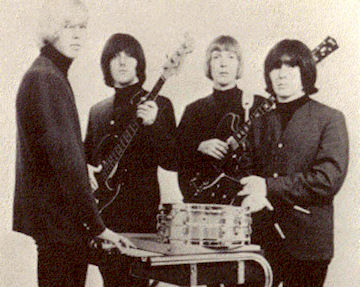 At the start of 1971, Dial switched distributors from Atlantic to Mercury, and the labels changed from red
and black to yellow and red. The catalog series changed to the 1000 series. "I Gotcha" [Dial 1010] made
#1 R&B and #2 pop early in 1972, and Joe Tex had several more chart hits by the end of 1975, when the
distribution agreement with Mercury ended, but it just wasn't the same as the heydays with Atlantic.
From 1976 to 1978, Dial temporarily ceased issuing product, and Joe Tex signed with Epic Records,
where he had a #12 pop hit with "Ain't Gonna Bump No More (With No Big Fat Woman)" [Epic 50313],
the first of his big hits to be written by anyone else but himself (it was written by Buddy Killen and Bernie
Lee McGinty).
At the start of 1971, Dial switched distributors from Atlantic to Mercury, and the labels changed from red
and black to yellow and red. The catalog series changed to the 1000 series. "I Gotcha" [Dial 1010] made
#1 R&B and #2 pop early in 1972, and Joe Tex had several more chart hits by the end of 1975, when the
distribution agreement with Mercury ended, but it just wasn't the same as the heydays with Atlantic.
From 1976 to 1978, Dial temporarily ceased issuing product, and Joe Tex signed with Epic Records,
where he had a #12 pop hit with "Ain't Gonna Bump No More (With No Big Fat Woman)" [Epic 50313],
the first of his big hits to be written by anyone else but himself (it was written by Buddy Killen and Bernie
Lee McGinty).
After things died down at Epic, Killen re-activated the Dial label in 1978, under a new distribution deal with T.K. Productions, and put out three singles and an album by — who else? — Joe Tex. None of these records were successful, and Joe Tex returned to spending time with his family on his farm in Texas. He died of a heart attack in August, 1982, at the age of 49.
Other artists who had singles on Dial during the Atlantic days include: the Illusions, Rhodes & Two Sisters, Wayne Kemp, Hobey Dodd, Jack Barlow, Marty Martel, Paul Kelly, Chris Harris, the Daydreams, Don Ray, Cherry Stone, Bobby Fischer, Glenn Vandall, the Busybodies, Sherrie Hughes, the Allman Joys (an early version of the Allman Brothers Band), Len Wade, the Tikis, the Beets, the Buddy Killen Orchestra, Front Page News, the Dialtones, Little Archie, Clarence "Frogman" Henry, Steff Sulke, Skip Gibbs, the Daybreakers, the What-Knots, Chain Reaction, Barry Jones, the Magnificent 7, Diana Trask (who had a country charter with "Lock, Stock and Teardrops" [Dial 4077, 6/68, #70] and later several other hits on Dot), Perpetual Motion, Ned Johnson, Free Reign, Little Kathy Hoffman, the Brotherhood, Duffy, and Chapter III.
After the switch to Mercury in early 1971, additional artists include: Dutch Ross, Jimmy Holiday, Kevin Johnson, Johnny Lee, the Nashville Edition, Don Wayne, Gunilla Hutton, Annette Snell, Jean Knight, King Floyd, Red Lane, and Bobby Roy.
After the few records released under T.K. distribution in 1978-1979, Killen closed the Dial label for good and concentrated on his other business interests. Buddy Killen died in Nashville in 2006.
 Dial Album Discography
Dial Album Discography
























 Back to the Atlantic Records Story
Back to the Atlantic Records Story
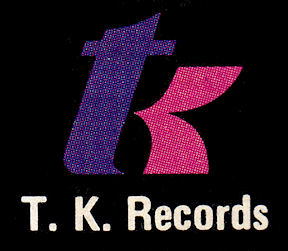 Back to the TK Records Story
Back to the TK Records Story
 Back to the Discography Listings Page
Back to the Discography Listings Page